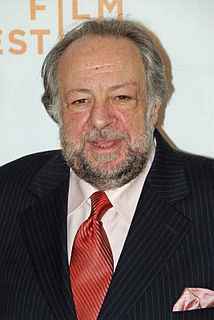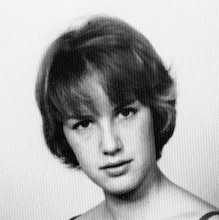A Quote by Malcolm Gladwell
The Tipping Point is the biography of an idea, and the idea is very simple. It is that the best way to understand the emergence of fashion trends, the ebb and flow of crime waves, or, for that matter, the transformation of unknown books into bestsellers, or the rise of teenage smoking, or the phenomena of word of mouth, or any number of the other mysterious changes that mark everyday life is to think of them as epidemics. Ideas and products and messages and behaviors spread just like viruses do.
Quote Topics
Any
Behaviors
Best
Best Way
Biography
Books
Changes
Crime
Day Life
Ebb And Flow
Emergence
Epidemics
Everyday
Everyday Life
Fashion
Fashion Trends
Flow
Idea
Ideas
Just
Life
Life Is
Like
Mark
Matter
Messages
Mouth
Mysterious
Number
Other
Phenomena
Point
Products
Rise
Simple
Smoking
Spread
Teenage
Them
Think
Tipping
Tipping Point
Transformation
Trends
Understand
Unknown
Very
Viruses
Waves
Way
Word
Word Of Mouth
Related Quotes
We can't have an idea of what life should look like, about how spirit should be manifesting as our very life, because all of those ideas would just be products of the past - something we learned, imagined, or desired. Once again, we find ourselves back in the unknown - not in the idea of the unknown, but in the lived reality of it. It's the mind humbled, on its knees, with bare feet and free of the known.
You know, an idea is just an idea. There seems to... the kind of epiphanies that you have, like the little sudden bursts of light, they're very small and they're very short and it's the pursuit of the idea that's the important thing. . . . I know a lot of people who have way better ideas than I do that-much more frequently than I do that just can't sit down and actually do it. Ideas are such are a little overrated really; it's the work behind the idea that's the important thing.
One of the reasons I don't like to use the word "tricks" , I do think of them as theatrical pieces, and as pretentious as that might sound, there's a real reason for it. It's not the idea of tricking you; it's the idea of taking you along on this particular journey the way you would in any other theatrical situation. But, hopefully, you're going to be fooled at the end.
The mind being, as I have declared, furnished with a great number of the simple ideas conveyed in by the senses, as they are found in exterior things, or by reflection on its own operations, take notice, also, that a certain number of these simple ideas go constantly together... which, by inadvertency, we apt afterward to talk of and condier as one simple idea.
We are the most focused company that I know of or have read of or have any knowledge of. We say no to good ideas every day. We say no to great ideas in order to keep the amount of things we focus on very small in number so that we can put enormous energy behind the ones we do choose.....It's not just saying yes to the right products, it's saying no to many products that are good ideas, but just not nearly as good as the other ones.
The idea of immortality, that like a sea has ebbed and flowed in the human heart, with its countless waves of hope and fear, beating against the shores and rocks of time and fate, was not born of any book, nor of any creed, nor of any religion. It was born of human affection, and it will continue to ebb and flow beneath the mists and clouds of doubt and darkness as long as love kisses the lips of death. It is the rainbow -- Hope shining upon the tears of grief.
a novel is not born of a single idea. The stories I've tried to write from one idea, no matter how terrific an idea, have sputtered out and died by chapter three. For me, novels have invariably come from a complex of ideas that in the beginning seemed to bear no relation to each other, but in the unconscious began mysteriously to merge and grow. Ideas for a novel are like the strong guy lines of a spider web. Without them the silken web cannot be spun.
Like many great ideas in biology, the idea implicating infectious causation in chronic diseases, though simple, has far-reaching implications. It is so simple and so significant, that one would think it would have been recognized by many and would be the starting point for any discussion on the causes of disease. Not yet.
[Photographer Julian Wasser] had this great idea that I should play chess naked with Marcel Duchamp and it seem to be such a great idea that it was just like the best idea I'd ever heard in my life. It was like a great idea. I mean, it was - Not only was it vengeance, it was art, and it was, like, a great idea. And even if it didn't get any vengeance, it would still turn out okay with me because, you know, I would be sort of immortalized.
It's a very teenage idea - this idea that thought is ruined when we give over to television shows and glossy magazines and what they are telling us to do. The alternative, I believe, in is pitiless censorship. Because we owe each other the best effort we can to see one another without that mediation.
I'm one of those people that thinks the world changes in smaller and in more mysterious ways than a lot of people like to think. A lot of traditional charities and organizations do things that on the surface seem like a good idea, but it doesn't change the way that people think about interacting with other people.


































